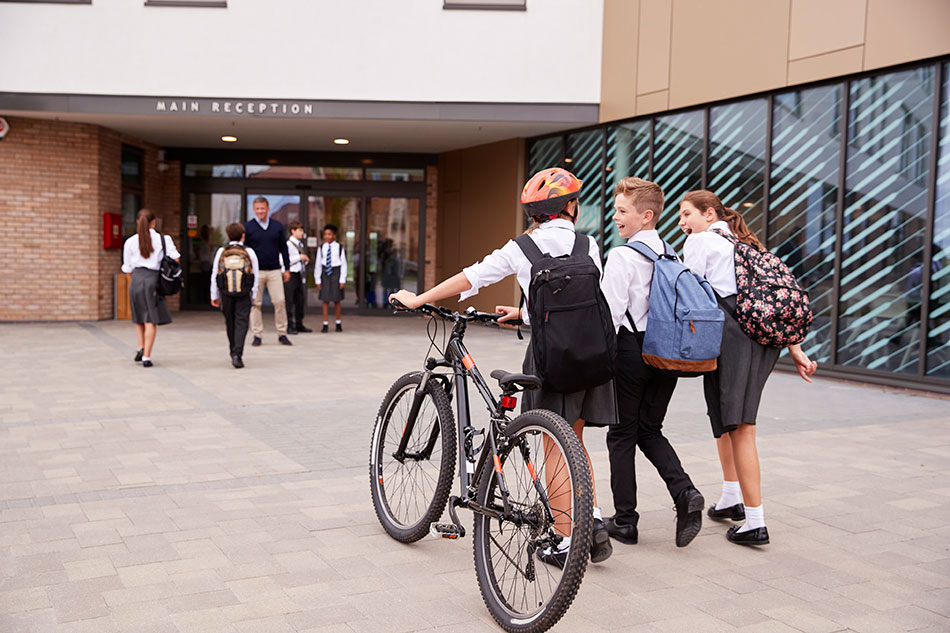Children’s rights are on the political agenda in Scotland. The United Nations Convention on the Rights of the Child (Incorporation) (Scotland) Bill is making its way through the Scottish Parliament with cross-party support, and once passed, will enshrine in law and protect the rights of children and young people. As the UK emerges from the coronavirus pandemic, incorporation will offer Scotland a unique rights-based framework around which to build its response. Here, Bruce Adamson, the Children and Young People’s Commissioner Scotland explains why incorporation of the United Nation Convention on the Rights of the Child (UNCRC) is so important.
Scotland is taking a momentous step for human rights in 2021 as we navigate a strong road to recovery from the global pandemic. Incorporating the UNCRC into domestic law is the most important thing we can do to ensure children’s rights are respected, protected, and fulfilled.
Scotland will be following in the footsteps of an increasing number of countries including Norway, Finland, Iceland and most recently Sweden, which have incorporated the UNCRC into national law. Their experience shows that this is an important way to ensure systematic and effective legal implementation of the UNCRC at a national level.
Founded on the concept that all children should grow up in a family environment of happiness, love and understanding, the UNCRC contains a broad array of rights designed to ensure children are treated with dignity and fairness; that they are protected; and that they develop to their full potential and can participate in their communities. It builds on the Charter of the United Nations (1945), which recognised that the inherent dignity and the equal and inalienable rights of all members of the human family are the foundation of freedom, justice, peace and social progress, and breathes life into the Universal Declaration of Human Rights (1948), which proclaimed that childhood is entitled to special care and assistance.
It is the first legally binding international instrument to incorporate children’s full range of civil, cultural, economic, political and social rights, as well as aspects of humanitarian law. It requires states to adopt comprehensive legislative measures to ensure that rights are protected.
All children (everyone up to the age of 18) will benefit from incorporation. But it is the children whose rights are most at risk who will benefit most. The UNCRC requires the Government to give special attention to disabled children, care experienced children and those in vulnerable situations. It requires all available resources to be used to address poverty and provide services like mental health support.
This is particularly significant as we emerge from the human rights crisis of the pandemic. Incorporation means that Scotland must embed children’s rights and that public authorities must make decisions about services and budgeting taking into consideration their views and they must act in the best interests of children.
Some of what is set out in the Bill will be familiar, as it is broadly modelled on the Human Rights Act 1998, which brought the European Convention on Human Rights into UK law. This includes a prohibition on public authorities acting incompatibly with the UNCRC, and the provision of substantive and legal remedies when a violation occurs. This last point is particularly important, given that the Committee on the Rights of the Child has made clear that “for rights to have meaning effective remedies must be available to redress violations”.
Whilst there will be mechanisms for redress where children’s rights are breached, international evidence suggests that incorporation of the UNCRC does not lead to a significant increase in litigation. Instead we will build a proactive culture of children’s rights across government and public services at all levels with child rights-based approaches to decision-making on law, policy and practice.
Importantly for the role of my office in safeguarding and promoting the rights of children and young people, the bill sets out a power to take cases directly on the grounds that a public authority has acted, or proposes to act, incompatibly with the UNCRC requirements, and to seek to intervene in proceedings initiated by someone else against a public authority.

Last year the UN warned of the grave physical and psychological effects of the pandemic on children and we have seen children and young people’s rights to education, health, family life and to gather with friends all been infringed. Those whose rights are already most at risk are suffering most; disabled children, Black and Minority Ethnic children, care-experienced children, and young carers. More children are now living in poverty, suffering poor mental health, and dealing with bereavement. Those in power must ensure all children’s rights are fulfilled and must use all available resources to the maximum extent, paying particular attention to children in vulnerable situations. Incorporation will mean that children’s rights will be considered at the earliest stages in decision-making and recognising the economic arguments for a rights-based approach to budgeting. As we rebuild from Covid, this will lead to better education, health, and justice outcomes which will have huge economic benefit.
The Scottish Government has shown human rights leadership in bringing forward this bill, and the world is watching to see how quickly they deliver it for children. With the significant impact of the pandemic on children’s rights, we must make sure that they are fully protected by this law as soon as possible. Many of the countries who have not yet incorporated the UNCRC including those in the UK are looking to follow our lead.
More Information:
You can find out more here: www.cypcs.org.uk










